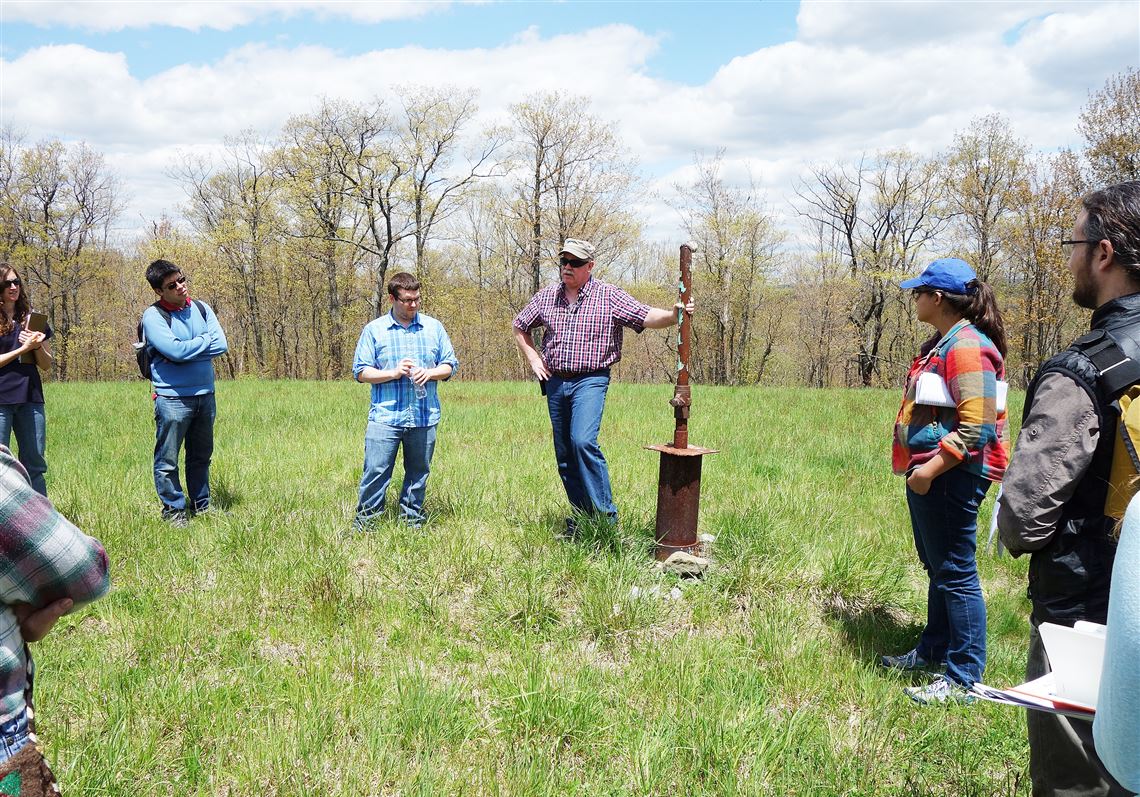Four years ago, when Pennsylvania modernized its oil and gas law, it added hundreds of thousands of dollars to the maximum bond amounts that companies must set aside to ensure wells are properly plugged and any damage is cleaned up.
A bill introduced in the state House of Representatives this month would raise the bond requirements for unconventional gas wells by millions of dollars more.
“The amount should be much higher,” said Rep. Thomas Murt, R-Montgomery, the bill’s prime sponsor. His legislation would add a $2 million bond per shale gas well on top of the current requirement of $4,000 to $10,000 per well, depending on the length of the well bore.
House Bill 2277 also would allow for a blanket bond equal to 20 percent of the total the company would otherwise have to pay for all of its individual bonds. Currently, blanket bonds, which cover all of a company’s wells in the state, are capped at between $35,000 and $600,000.
Mr. Murt said the $2 million figure is merely a placeholder to begin discussions about setting a bond that comes closer to the actual cost of remediating cases of significant environmental damage, especially if that damage is not apparent until after a company has left a well site.
“We’re saying that if you cause environmental damage in the Commonwealth of Pennsylvania, you had better have a bond in place for some resources to clean up the mess,” he said.
Bonds are meant to ensure that companies do not walk away from their environmental liabilities if they go out of business or do not have the money to pay for cleanup if something goes wrong.
Past oil and gas extraction eras, before modern regulations or bonding, left Pennsylvania with potentially hundreds of thousands of abandoned wells that were never properly plugged and continue to create pathways for pollution.
The higher bond amounts adopted by then-Gov. Tom Corbett and the General Assembly in 2012 were seen as an improvement over bond levels that had not been revised since 1984. Previously, companies had to pay $2,500 per well or $25,000 for a blanket bond.
But even before Pennsylvania’s new bond requirements were finalized in 2012, they were criticized for being inadequate to cover the costs of plugging future abandoned Marcellus Shale wells.
A 2011 study by Carnegie Mellon University researchers estimated the average cost to decommission and restore unproductive Marcellus wells would be $100,000 per well, and the higher bonds being proposed by the Corbett administration and the legislature at the time — which were later largely adopted — would still cover only a fraction of that.
With active unconventional well counts now topping 1,000 for the state’s most prolific driller, the state’s maximum $600,000 blanket bond can amount to $600 or less per well.
The state Department of Environmental Protection has not yet had to plug any abandoned shale wells, spokesman Neil Shader said.
Although state law allows regulators to adjust bond amounts every two years to keep up with the projected costs of plugging wells, there are not currently any plans to try to adjust the bond rates, he said.
Interest in Pennsylvania’s bonding levels waned after the state’s updated drilling law, Act 13, took effect. But states and scholars have placed new emphasis on the topic nationally in recent months as declining oil and gas prices have strained the industry and bankrupted vulnerable companies.
Achieving a balance
A study this spring by the environmental think tank Resources for the Future found that state bonding requirements across the country are too low to cover the costs of decommissioning wells. “When wells become orphaned, states and taxpayers will be on the hook for significant clean-up liabilities.”
The researchers recommended that states “should require an amount of financial assurance that reflect real world plugging costs.”
The study ranked Pennsylvania first out of 23 states and jurisdictions in terms of the stringency of its rules to minimize the risk that inactive wells will create an environmental or financial burden for the public. But it also found that the state’s costs for plugging orphaned wells were fully covered by the state’s average bond amount just 1.5 percent of the time.
Economists who have published studies on oil and gas well bond levels tend to agree that current rates across the country are generally too low, but few put a dollar figure on what a more appropriate bond would be.
“I think there is a very good case to raise these things from where they currently are, but I can’t tell you exactly how much we should be raising them by,” said Judson Boomhower, a postdoctoral fellow at the Stanford Institute for Economic Policy Research who did an intensive study of the effect of oil and gas well bond requirements in Texas.
“You are trading off two things here,” he said. “The benefit of a larger bond is that the oil driller becomes more and more accountable.” But a larger bond imposes a larger financial burden on drillers, especially small- or medium-sized companies.
In economic terms, the “optimal” bond amount would achieve a balance. The difficult part is discerning when the amount is just high enough to change behavior.
“It’s all about how much safer that company is going to be if they stand to lose $2 million instead of $100,000,” he said. “That’s really a hard thing to know.”
Most states’ bonds run a few thousand dollars or less per well, relics of eras when well designs were simpler and plugging them cost less, he said. On the other hand, the $2 million bond proposal in the Pennsylvania House would be “much larger than most other jurisdictions.”
Mr. Murt said he hopes that his proposal will at least inspire a committee hearing on bonding levels. He said he expects the bill to take a legislative session or two to gain traction.
In a statement, the Marcellus Shale Coalition, a North Fayette-based trade group, called the proposal “misguided” and “another Harrisburg solution in search of a problem.”
“Act 13, a bipartisan industry-supported law that modernized and strengthened the Commonwealth’s natural gas regulations, significantly increased bonding requirements to one of the nation’s highest levels and, along with other environmental laws, tightened environmental remediation requirements, regardless of cost to the operator,” the coalition said.
The Pennsylvania Environmental Council, a statewide environmental group, has not taken a position on the bill, said John Walliser, the council’s senior vice president for legal and government affairs.
“We are supportive of more robust and flexible bonding, but haven’t settled on a particular dollar amount,” he said.
Laura Legere: llegere@post-gazette.com.
First Published: August 30, 2016, 12:47 p.m.


















